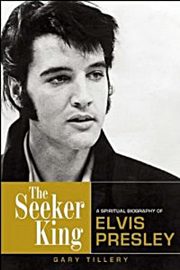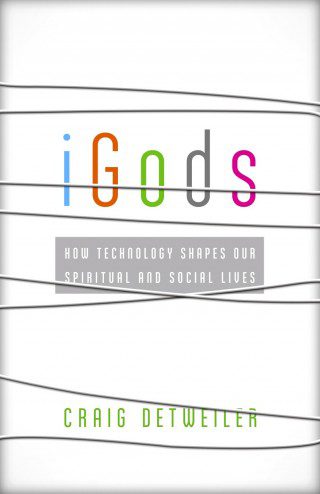I have always been an Elvis fan, initially because we shared the same birthday. Over time, I came to truly love his classic songs, from the Sun Sessions in Memphis to his NBC Comeback Special in 1968. When Elvis was encouraged to find something deep within his soul, the results were startling—a bolt of rock and roll lightning. Yet, in between the early Elvis and the comeback Elvis were years of Hollywood Elvis, phoning it in for the movies.
What kept Elvis going amidst all the mediocrity that Colonel Tom Parker booked for him? In The Seeker King, Gary Tillery explores the spiritual side of Elvis. Tillery doesn’t focus upon the gospel recordings or the Pentecostal roots of Elvis’s upbringing. Instead, he focuses upon the theosophical side of Elvis, the New Age books which accompanied his post success crises. Tillery portrays Elvis as a man who sensed he had a divine calling, yet struggled to make peace with his success. How could such a seemingly dedicated Southern Christian engage in pill popping and womanizing with such abandon?
Tillery emphasizes the Gnostic beliefs of Elvis’s key handlers, like his hairdresser Larry Geller. He introduced Elvis to books like The Impersonal Life, authors like Helena Blavatsky, and movements like the Self-Realization Fellowship. After reading the Autobiography of a Yogi, Elvis sought initiation into Kriya Yoga. Larry Geller introduced him to the leader of the Self-Realization Fellowship, Sri Daya Mata. While the goal of Yogananda’s teaching was a harmony between spirit, mind, and body, Elvis focused on his potential to acquire special powers. Perhaps Elvis came to abuse his body because he slowly became convinced that the flesh paled in comparison to the mind. While critics may have latched onto his weight gain, Elvis was focused upon transcending his situation. A disembodied faith may have allowed him to separate his adulterous ways from his avowed dedication to his wife, Priscilla. If what matters are strictly our soul or our being, then what we do to and with our body need not count, right?
Living in Southern California, I drive past the Self Realization Fellowship in Pacific Palisades on a regular basis. It merges eastern mysticism with western pragmatism. It offers an esoteric set of beliefs that encourages people to tap into their personal power. After a rigorous Christian upbringing in Tupelo, Mississippi, Elvis must have welcomed metaphysical practices that placed him in the center. Elvis meditated upon his place in the world. Why had he become world famous? What message was he uniquely born to offer adoring audiences? He came to see himself as a “a soul, a spirit, a force.” The Seeker King is not the Gospel According to Elvis, but Elvis as the center of his own movement.
Gary Tillery’s biography takes a while to get traction. The description of Elvis’s early years reads like a compendium of other biographies. But once Larry Geller enters the scene and Elvis embarks on a spiritual search, The Seeker King picks up speed. Elvis comes to share the fascination with all things Eastern that also entranced the Beatles. As his career unravels, Elvis loses far too many friends and significant relationships. Those members of his “Memphis Mafia” who should or could have protected him enabled his drug abuse instead.
What does true friendship look like? Those who benefited from Elvis’ largesse failed to come to his aid in a timely manner. The Memphis Mafia saw the decline in his health, yet, they did nothing to stop it. Such contempt for the power and potential in Elvis may explain why he sought answers beyond his Christian roots. How to explain unparalleled fame and inordinate riches? Elvis sought to understand his calling, why was he set apart. The Seeker King suggests that books beyond the Bible provided answers. Sadly, in the end, no belief system could divert Elvis from his path toward self-destruction.
















